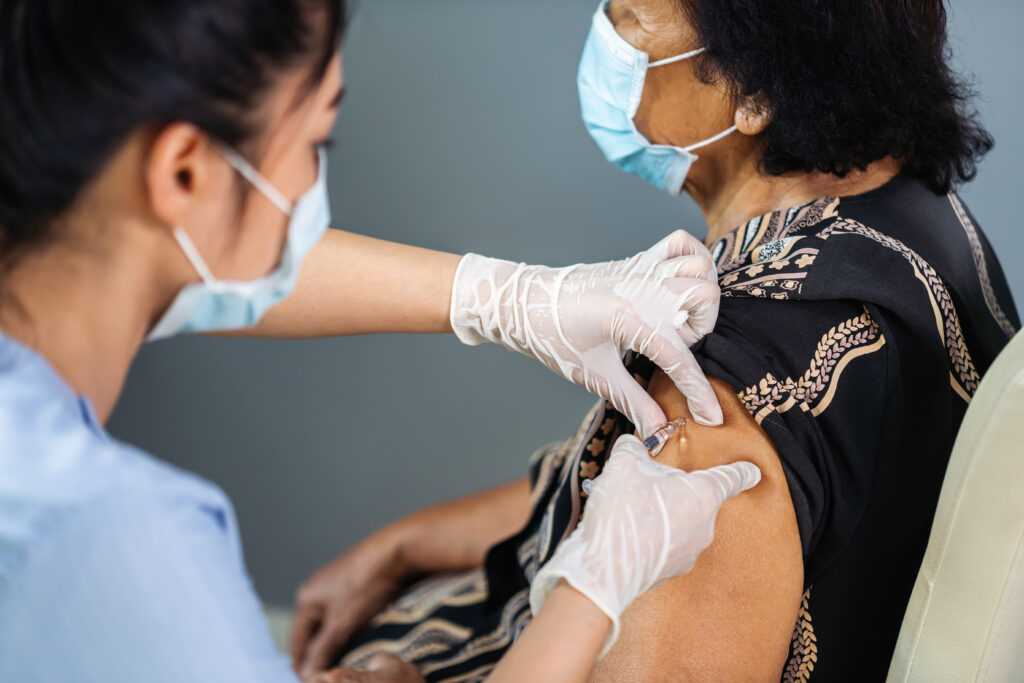A new study reveals just how effective vaccination against COVID-19 has been in reducing hospitalisations in regional Australia and highlights the value of primary care in reducing the burden on the hospital system.
General practitioners have been described as “critical” by researchers who studied the effectiveness the coronavirus disease 2019 (COVID-19) vaccine in keeping people out of hospital during the acute phase of the pandemic.
The research, published in The Medical Journal of Australia, highlights the valuable role played by people in primary care in reducing the burden on regional Queensland hospitals.
“GPs that provide vaccination are the backbone of Australia’s vaccination program throughout Australia,” lead author Dr Nicolas Smoll, a public health senior medical officer at Sunshine Coast Hospital and Health Service, told InSight+.
“In addition, they are critical to providing high quality vaccine information to our population, guiding what has been demonstrated to be one of the greatest public health achievements of the 21st Century.”

The findings
Before this study, the effectiveness of vaccination in preventing hospitalisation with symptomatic COVID-19 had not been reported in Australia.
The researchers evaluated hospitalisations in central Queensland during the first quarter of 2022, after border closures lifted.
During this time, the hospital admission rate for Central Queensland people with COVID-19 was low at just 0.48%.
The estimated effectiveness of vaccination for protecting the need for hospitalisation was 70% after two vaccine doses and 82% after a booster.
Protecting Indigenous Australian communities
For Indigenous Australians, vaccine effectiveness was found to be 69%, but the low number of hospitalisations limited the reliability of this estimate.
Dr Smoll said there is very little understanding about COVID-19 vaccine effectiveness in regional populations, as well as First Nations populations worldwide.
“The evidence provided by this work is exceptionally important because it suggests (with appropriate caveats) that vaccine effectiveness in our First Nations populations is similar to that observed in the general population,” Dr Smoll said.
“A recent paper demonstrated robust immune response in Australian First Nation’s peoples, and this study translates these findings to real life events as we demonstrated vaccine effectiveness for protecting against symptomatic hospitalisations.”
Concerns for waning immunity
At the time of the study there was no evidence of waning immunity found, but the time between most recent vaccines dose and infection was relatively brief.
The researchers noted a study from Sweden that found protection against the need for hospitalisation dropped to 20–30% six months after a second dose of vaccine.
Dr Smoll highlighted the need for further research into waning immunity.
“The next step in our team’s journey is to better understand the waning immunity function. We look forward to using much larger datasets that can allow us to estimate the waning immunity function.
“This is an important space to be monitoring, as new strains emerge and new vaccines and vaccine technologies change the landscape of vaccine effectiveness against COVID-19.”
Continued community awareness
Dr Smoll also emphasised the need for targeted awareness campaigns to keep communities informed.
“Personalised (targeted) information and mode of dissemination is critical to optimising vaccine demand and, thus, coverage,” he said.
“For example, harnessing the power of social media and responding to the changing methods our population interacts with information is critical to supporting vaccine demand, combating vaccine hesitancy and, thus, maximising vaccine coverage (and saving lives).
“Codesign of vaccination media campaigns with our Indigenous and marginalised communities is one of the many solutions to ensuring COVID-19 vaccine information is disseminated to communities that would benefit most.”
GPs will continue to play a critical role in maintaining high levels of protection against COVID-19 in the community, Dr Smoll said.
“GPs are at the forefront of fight against vaccine hesitancy,” he said.
“Vaccine hesitancy threatens the high levels of protection seen in our community, and I commend the efforts of GPs working to combat misinformation.
“Providing the information to patients will be important to ensure protection as the levels of immunity wane over time.”
Read the full research article in The Medical Journal of Australia.
Subscribe to the free InSight+ weekly newsletter here. It is available to all readers, not just registered medical practitioners.

 more_vert
more_vert